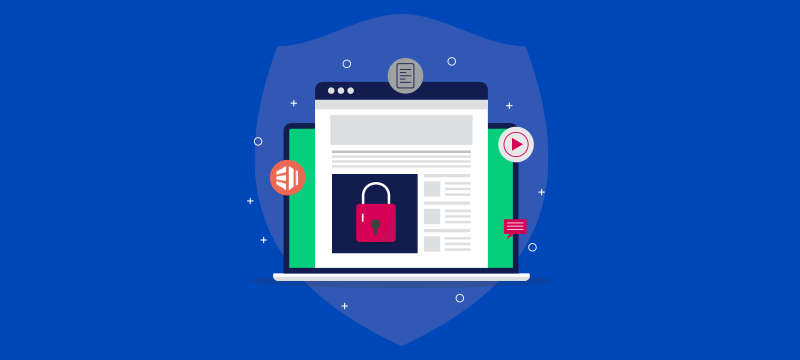While its ease of use, versatility and wide range of functions make WordPress the most popular website software in the world, the sheer number of websites using it make it an attractive target for cybercriminals. Keeping your WordPress site secure is, therefore, absolutely essential and here are some of the easiest ways to put robust security in place.
- Enable auto-updates
As WordPress and most of its plugins and themes are open-source, cybercriminals can easily access the code to find vulnerabilities. They will even send bots across the internet looking for websites with those weaknesses so they can target them for attack. This has led to an ongoing cat and mouse game, with developers frequently updating their software to remove those vulnerabilities. What makes WordPress websites most vulnerable is when owners don’t update to the latest versions as soon as possible. The longer it takes to update, the longer they are open to attack and the bigger the chance of becoming a victim.There are various ways to prevent this. One is to enable auto-updates, which you can do through your control panel or plugins like Jetpack. You can also use specialised WordPress security tools, like Patchman, that not only scans and fixes vulnerabilities but also finds and quarantines malware.
-
Uninstall deactivated themes and plugins
While users may update the theme and plugins they use, they may neglect those which are deactivated. However, these too may have vulnerabilities hackers can exploit. The easiest way to remove these weaknesses is simply to uninstall them. If they are from the WordPress repository or stored on your computer, it won’t take long to reinstall them if you ever decide to use them again. Deleting them also frees up disk space on your hosting account and could help improve your site speed. -
Install an SSL certificate
SSL certificates encrypt data sent between a visitor’s browser and your website. This ensures that personal and financial details filled in by the visitor when using your website (e.g., during checkout) are not stolen or tampered with. Importantly, when you have an SSL certificate, browsers label your website as secure using the padlock icon and this helps to increase visitors’ trust in your website and boosts SEO.eukhost’s WordPress Hosting plans let you install a free Let’s Encrypt SSL certificate through your control panel, saving you money year on year.
-
Use two-factor authentication
While strong passwords are very important in helping to prevent brute force hacking, two-factor authentication goes much further. Besides the username and password, two-factor authentication also requires users to fill in an additional numerical code. This code is sent to the user’s mobile phone so that unless a hacker has the mobile phone, they won’t be able to log in. Not only does this prevent brute force attacks; it also prevents hackers from gaining entry by using stolen login credentials. -
Install a security plugin
Security plugins, like Wordfence and Securi, not only provide robust firewall features to detect and prevent hacking and malware attacks; they also enable you to set other important controls to defend your site. You can, for example, block users or bots that make too many login attempts in a short space of time, and even set a limit on how many login attempts can be made. You can also block logins from specific IP addresses, countries or even usernames. - Choose secure web hosting
A good web host will ensure the server on which your website is hosted is kept secure. At eukhost, our WordPress Hosting comes with an advanced WordPress application firewall that continually monitors your server to protect your WordPress site from hackers and bots. Our free WordPress Toolkit also lets you implement a range of other important security features. - Backup your website
Though a backup doesn’t stop a cyberattack, it does prevent your business from suffering the consequences of losing all its files and data if your site is hacked, defaced, infected or corrupted. Many companies that are unable to recover quickly from an attack go out of business. A backup plan ensures that you have a recent copy of your website available to restore your site quickly should the worst happen. WordPress Hosting at eukhost comes with free daily backups included in the plan, keeping you protected and saving you money every month.
Conclusion
There are additional ways to strengthen your WordPress security besides the ones mentioned here, however, many of these involve making changes to the coding of your site. For those with little coding experience, the seven suggestions above are easy to implement and highly effective in keeping attacks at bay.
If you are looking for fast, secure WordPress Hosting with a wide range of useful features, visit our WordPress Website Hosting page.


